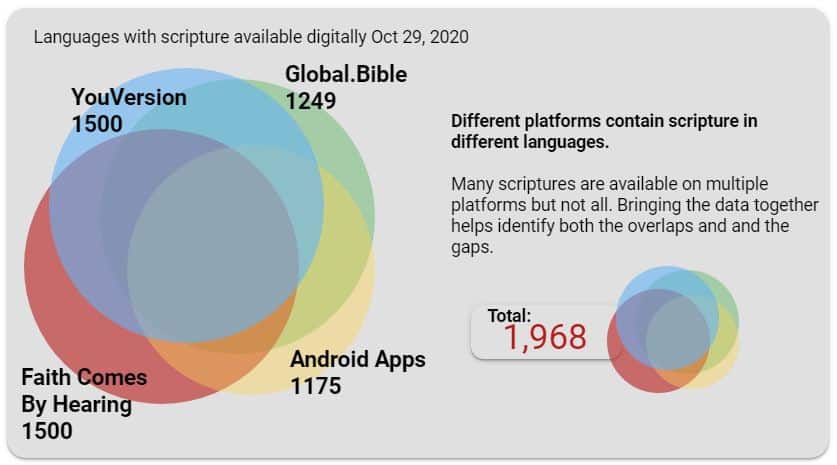
Recent years have seen a dramatic and steady increase in the number of Scripture translations available digitally via websites and smartphone apps. In October 2020, YouVersion reached a new milestone, with Scriptures now available in 1,500 of the world’s 7,360 languages. Globally, digital Scriptures in a total of 1,968 languages became available on various sites and apps.
Scriptures are now available in an increasingly wide variety of forms, including print, audio and video. And the numbers of languages in which Scripture can be accessed through various formats continues to grow. In 2014, YouVersion celebrated the 1,000th version available on its platform, and the 2,000th in 2019. The 1,000th individual language was reached in 2016, and as of 29 October 2020 they offer 2,200 versions in 1,500 languages. (See bible.com/en-GB/languages for the latest list.)
Faith Comes By Hearing has made similar progress, currently providing Scripture in about 1,500 languages. While their primary focus has been on audio recordings of Scriptures, in the last few years they have added videos, first in partnership with the “JESUS” film and now also with the Lumo project, through which they have committed to creating at least one gospel film in every recorded language. All of these are made available via the Bible.is website and app.
Other sources of online Scripture include sites supported by the American Bible Society and linked through global.bible and many other individual sites and apps. (The number for Android apps below is just the number we know about.)
The vision of the Wycliffe Global Alliance is to see “individuals, communities and nations transformed through God’s love and Word expressed in their languages and cultures.” A completed translation is rightly a cause for celebration, not simply as a static publication, but because it opens the way for people to engage with God through his Word in their own language and to be transformed through that encounter.
Source: wycliffe.net; article by Peter Brassington

